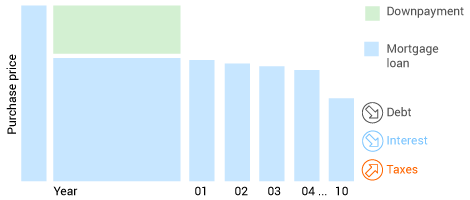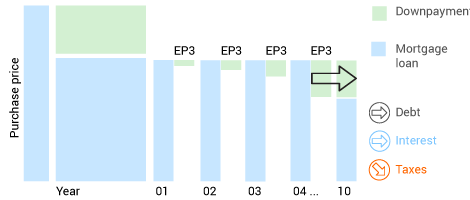If you're looking to buy a home, you’ll probably focus first on the financing. That includes the required downpayment as well as how much you’ll pay every year for your mortgage, interest and home maintenance.
Financing the purchase
Bear in mind that you will need to provide a downpayment of at least 20% of the purchase price, and at least half that downpayment must be in cash. You can take out a mortgage loan to cover the remaining 80%.
Mortgage and maintenance expenses
As a rule of thumb, your mortgage and interest payments plus your home maintenance expenses should not exceed a third of your gross annual household income.


